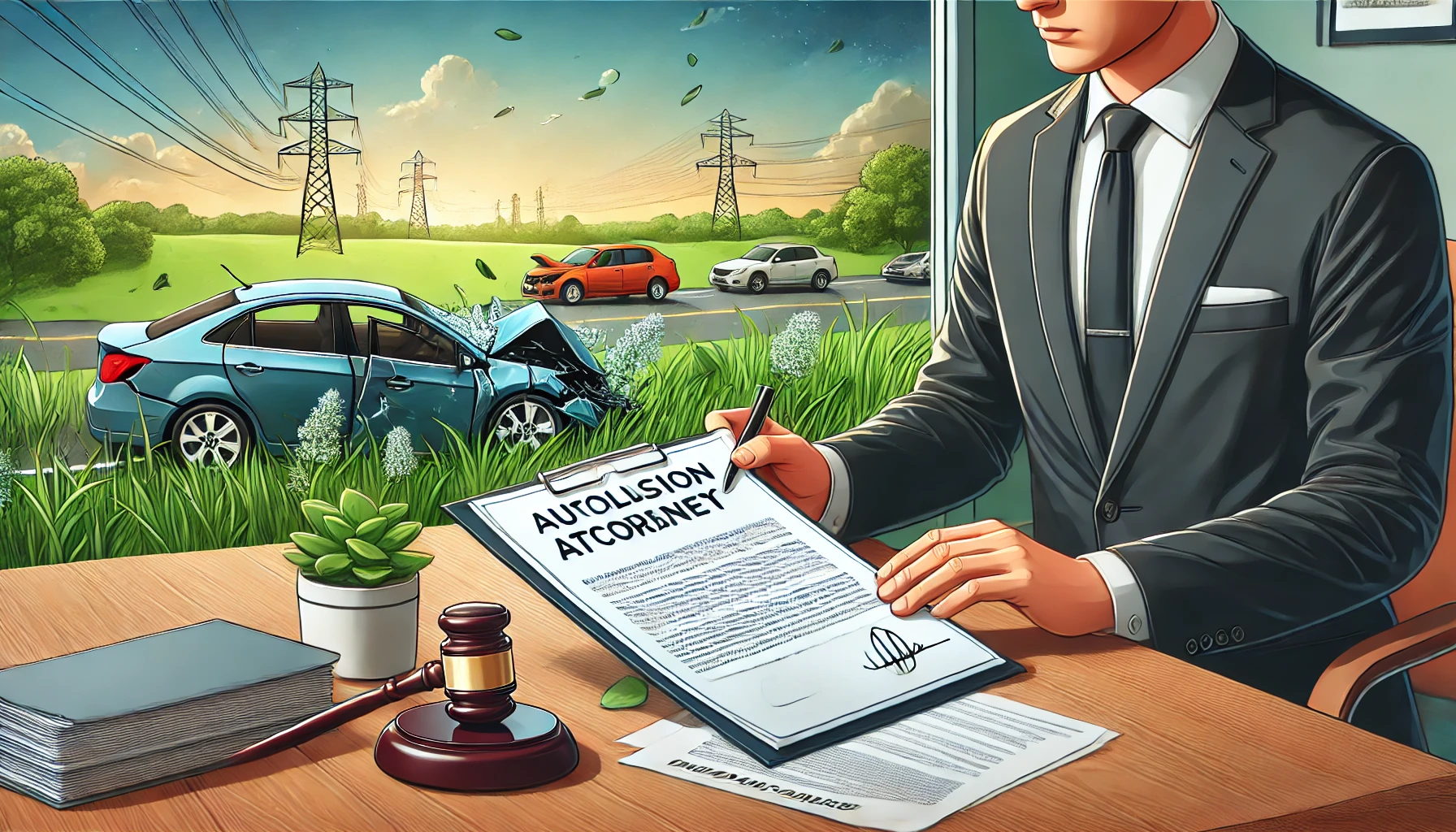Hiring an auto collision attorney is often a smart move for handling the complexities of insurance claims after a car accident. However, there may be situations where auto collision attorney removal frominsurance becomes necessary, prompting you to seek alternative representation or manage the claim yourself. This article provides a detailed, easy-to-follow guide on why, when, and how to handle such a situation effectively.
What Does an Auto Collision Attorney Do?
An auto collision attorney specializes in assisting accident victims in negotiating insurance claims, settling disputes, and, when necessary, representing them in court. Their primary goal is to ensure clients receive fair compensation for medical bills, property damage, lost wages, and other accident-related losses. Attorneys take the burden off clients by managing paperwork, deadlines, and negotiations.
Why Might You Remove an Auto Collision Attorney?
There are several reasons why you might want to terminate your relationship with your attorney. These include:
Poor Communication
- Your attorney doesn’t return calls or emails promptly.
- They fail to keep you updated on the progress of your case.
Disagreement on Strategy
- You feel your attorney is pressuring you into accepting a settlement that doesn’t meet your expectations.
- There’s a lack of alignment between you and your attorney regarding the direction of the case.
High or Unexpected Fees
- The attorney’s fees are higher than you anticipated, or there’s a lack of transparency about billing practices.
Loss of Trust or Confidence
- If you suspect your attorney isn’t prioritizing your case or lacks the competence to achieve the best outcome, trust may erode.
Case Delays
- If the case seems to be dragging unnecessarily, you might feel your attorney isn’t working efficiently.
Steps to Remove an Auto Collision Attorney
If you decide that removing your attorney is the best course of action, follow these steps:
Step 1: Review Your Attorney-Client Agreement
- Carefully read the contract you signed with your attorney to understand the terms for terminating the relationship. Look for clauses about notice periods, fees for work already completed, and potential penalties.
Step 2: Write a Termination Letter
Notify your attorney of your decision in writing. The letter should include:
-
- Your name and case details.
- The effective date of termination.
- A polite explanation (optional) of why you’re terminating the relationship.
- A request for all case files and documents.
Step 3: Notify the Insurance Company
- Inform your insurance company that your attorney no longer represents you. Provide them with your direct contact information or the details of your new attorney.
Step 4: Resolve Outstanding Fees
- Settle any unpaid fees for work your attorney has already performed. Attorneys often claim a lien on your settlement for their work, so it’s important to address this early to avoid complications.
Step 5: Hire a New Attorney (If Necessary)
- If your case requires continued legal expertise, research and hire a new attorney who better aligns with your needs.
How Removing an Attorney Affects Your Insurance Claim
Removing an attorney can impact your case in several ways. Understanding these effects can help you prepare:
Benefits:
- Improved representation if you hire a better-suited attorney.
- Increased confidence and satisfaction with your legal strategy.
- Enhanced communication and clarity.
Challenges:
- Delays: Switching attorneys may slow the progress of your claim temporarily.
- Costs: You may owe fees to your previous attorney for work completed, and a new attorney may charge additional fees.
- Legal Risks: Missing important deadlines during the transition can harm your case.
Tips for Choosing a Replacement Attorney
If you decide to hire a new attorney, ensure you make an informed decision to avoid repeating the same issues. Here are some tips:
Do Your Research
- Check the attorney’s reviews, qualifications, and experience handling auto collision cases.
Communicate Your Expectations
- Clearly state how often you want updates and your preferred method of communication.
Understand the Fee Structure
- Make sure the new attorney explains their fees upfront, including contingency agreements and any additional costs.
When You Should Think Twice About Removing an Attorney
While there are valid reasons to remove an attorney, there are situations where it might not be the best idea:
Close to Settlement or Court Hearing
- If your case is nearing resolution, switching attorneys could disrupt the process and delay your settlement.
No Backup Plan
- Removing your attorney without securing a replacement or being prepared to handle the case yourself can weaken your position.
Minor Disputes
- Misunderstandings or small disagreements can often be resolved with better communication rather than termination.
Legal and Financial Considerations
Attorney’s Lien on Settlement
- If your attorney has done significant work on your case, they may be entitled to a portion of your settlement. This is called an attorney’s lien, and it must be resolved before you receive your compensation.
Deadlines and Legal Obligations
- Switching attorneys mid-case doesn’t excuse you from court or filing deadlines. Make sure your new attorney or you handle these promptly.
Self-Representation Risks
- If you choose to proceed without an attorney, be aware of the challenges involved, including negotiating with insurance adjusters and understanding legal procedures.
Conclusion
Removing an auto collision attorney from insurance cases is a significant decision that should be approached thoughtfully. Whether it’s due to poor communication, fee disputes, or a lack of trust, taking the appropriate steps ensures a smoother transition and improves the likelihood of a favorable outcome for your insurance claim. Always review your agreement thoroughly, communicate your decision clearly, and consider hiring a new attorney if your case requires continued legal expertise.
By understanding the potential impacts of auto collision attorney removal frominsurance claims and taking a proactive approach, you can protect your interests and work towards a successful resolution. Whether you decide to stay with your current attorney, transition to a new one, or manage the claim yourself, making informed decisions at every step is essential to achieving the best possible results.
FAQs
Why would I consider removing my auto collision attorney?
Common reasons include poor communication, fee disputes, disagreement over case strategy, lack of trust, or delays in handling your claim. If you feel your attorney is not prioritizing your case or meeting your expectations, it may be time to explore other options.
How do I formally remove my attorney?
Start by reviewing your attorney-client agreement to understand termination terms. Write a formal termination letter and request your case files. Inform your insurance company about the change, and, if necessary, hire a new attorney to ensure continuity in your case.
Will removing my attorney delay my insurance claim?
Transitioning between attorneys may cause temporary delays as the new attorney gets up to speed. However, if your current attorney is already causing delays, switching may ultimately help resolve your case faster and more effectively.
Do I have to pay my attorney after I remove them?
Yes, you are generally responsible for paying your attorney for work already completed. They may also place a lien on your settlement to claim unpaid fees. Be sure to address any financial obligations before finalizing the termination.
Can I handle my insurance claim without an attorney after removal?
Yes, you can manage the claim yourself, but it may be challenging to negotiate with the insurance company and navigate legal procedures without expertise. If the claim is complex, hiring a new attorney is often the better choice to protect your rights and maximize compensation.
Article Recommendations
Can Comprehensive Insurance Cover a Speaker Replacement? What to Know
816 389-9598 Car Insurance Heather: Expert Guidance You Can Trust










